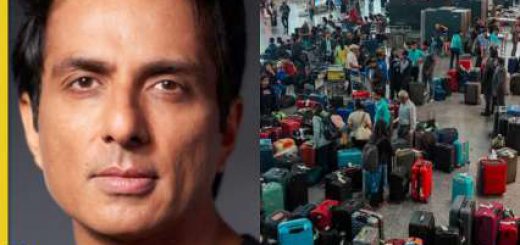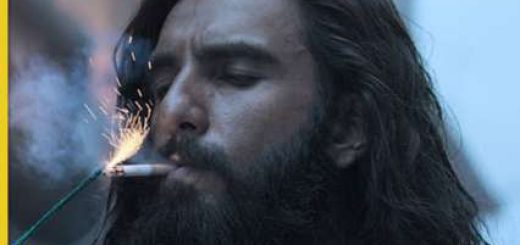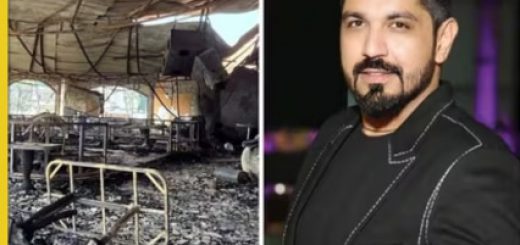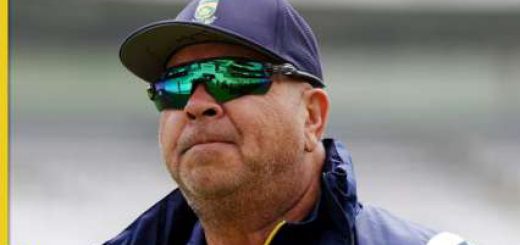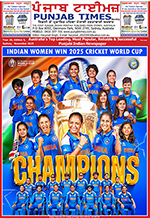Anushka Sharma Filmy Adventures
Anushka speaks about her battle-that-never was with Raveena Tandon, off-screen shenanigans with costar Ranbir Kapoor and her boldest move as a producer.
Actor Anushka Sharma, after the resounding success of her film PK, gears up for exciting times with three very different films like NH10, Bombay Velvet and Dil Dhadakne Do coming up in quick succession this year. In conversation with Screen, the actress speaks about her battle-that-neverwas with Raveena Tandon, off-screen shenanigans with costar Ranbir Kapoor and her boldest move as a producer.
Did PK live up to your expectations as far as the heroine’s role for making an impact is concerned?
Anushka Sharma: I think it lived up to my expectations, the first time I saw the film. That is what I was hoping for and it happened to an extent. I knew it was a good film and that it was going to do well, when I saw it for the first time. It struck the right
chord with me and I think, with the people I was showing it to. What it did for me as an actor was the kind of appreciation that I got from people in the industry and the media—they were all unanimous in their appreciation of my work in the film which is what I wanted. I
didn’t want to just be a part of PK.
How different is NH 10 from PK?
AS: NH 10 is the story about a normal working couple living in Gurgaon. They decide to take a trip over the weekend and during that road trip an encounter, an incident takes place that completely takes them off the road, how they get involved and what happens thereafter. I think that whole struggle forms the rest of the film. When you move from one place to another— the beauty of moving away from the urban setup into the rural parts of India —you see that change, the way people talk and the feeling of being out of place in your own
country. It’s not your space and that’s where you find these characters. They are the same people, the same country. Everything is the same, they are probably talking the same language, but it’s just the way they interact that’s different—you could call it a class difference or language difference— that element is there. When you see Arjun (Neil Bhoopalam) talking with these people, you feel that they belong to two different worlds. Their coming together and their lives getting jumbled up was very very exciting. NH10 is very gritty and real in terms of the flavour and the storytelling, and that I think really hit me and made me decide about producing the film.
Any road films that you have liked watching?
AS: I liked Thelma & Louise. Of the recent films, I liked Highway, it’s a good genre, nice to watch because everyone can relate to road trips. When we were growing up, we used to travel a lot. On the way, there would always be a story cooking up in my head. You see things when you travel and I had the fortune of travelling a lot from one state to another, because my father was in the army. I got to see different places, languages changing along with the roads etc—it’s got that something special in it.
What were the stories cooking up in your head? Are there any particular experiences that you can recall?
AS: I can’t remember, and they were probably not very good stories. But the process would start with something small like I didn’t have control over which music is playing in the car because my brother would decide it, so I couldn’t just say, ‘please, yeh gaana bahut bakwaas hai’. So, you mind your own business and start cooking up something in your own head. While growing up, it would be small things like
what if we were not going here and going somewhere else instead. I have always liked to experience the real flavour of the place by meeting and talking to people, observing how they behave. Even when we would stop at a dhaba, I would observe the difference after crossing from say, Karanataka to Belgaum; when you enter Maharashtra, the scenery suddenly changes. Even the manner in which people talk changes with the place. For instance, in the North everyone has loud mannerisms.
Are you worried about people drawing parallels with Highway since that was also a road misadventure?
AS: I can understand why people would group the two films together given that they belong to the same genre. But, when they watch the film, they won’t find similarities. There’s obviously a journey that makes you come in contact with a side to you that you didn’t know existed. You are cocooned in the way that you live your life and in the way you think, this is how the world is, and then you see
something else and realise that this is how the world is too, and you cope with it.
Bombay Velvet, is another unusual film that features you as Rosie, a Jazz singer…
AS: Bombay Velvet being a period film, has a certain background from which my character comes. I had no idea of those films and I was very scared to get into it because it was something I didn’t understand and wouldn’t get. I kept asking Anurag (Kashyap) for background details and he was just so confident that everything would be fine. He told me to watch Cabaret, Chicago, A Star is Born—but that was all for the stage performances. There is one film which he made me watch which was about an artist in Paris in the ’50s -’60s that dealt with relationships. I also read up about the Jazz era of Mumbai and it was shocking to know that places like Gaylord etc have existed since
such a long time. In a way, you were actually reading history which was very engaging. It was like, I wish I was born then. If you think about it. The ‘50s-’60s were the best times to be born in—people were way more liberated. Even films from that time were so liberated.
What were the interesting bits for you?
AS: I just got the whole Jazz scene, people getting dressed up for the evening, the fancy cars, the whole prohibition time, it was all very exciting— it’s the way you imagine South Mumbai, It was very cool to play the role of a jazz singer, because at that time they were the stars whom people just came to hear. All the cool things happened at that time, and I love the pace—there was an ease then—but now, the whole speed to get things done has killed that. Just the way they took time to speak was so cool and now, it’s like why are they talking so much? I downloaded the complete soundtrack of Mad Men, and would spend all my waking hours listening to that music, even while having a shower! I realised that over time, my pace was becoming slower, you know. It was lovely. I was getting into that whole easy space which was required for my character’s on-stage persona.
How did you get into the skin of the character?
AS: It helped that we were shooting in Sri Lanka. It is easy to fool yourself when you are shooting in a place that’s cut-off. We were not even in Colombo, but in Yala, six hours from Colombo. It’s like their Film City which was quite far away. We lived with the crew, and living on the sets really helps because once you got on the set, everyone apart from the crew is dressed in a certain manner and it would get you into the mood. would watch period dramas.
And you were simultaneously shooting for PK, so how did that go?
AS: I could feel the difference when I had to get back on the sets of PK.Rajkumar Hirani would say, “Anushka tu ek kaam kar, tu Anurag bhool ja aur abhiRaju Hirani ka shot de de mujhe.” With him, everything was pre-decided and in two seconds, you had to deliver this expression. In Anurag’s films, you have more time to get into character, so that’s when you feel the difference. When you finish a film, you don’t realise you are doing this, this and this. It’s only when you are in a different space, that you realise what you are doing.
Have you ever remained in-character beyond a film’s shooting?
AS: In NH 10 there’s a scene showing Meera’s birthday. It’s a very intense scene, and what I experienced during that scene, stayed with me for two days. I started feeling low and I had no idea what it was, and I was like, ‘everything is fine so why am I feeling like this’? The thing is that you are physically running etc, so it’s too real. Your body also starts getting fooled when you are shooting in real locations in
the night, so it did have an effect on me. The shooting was in a place called Kejarla, about 60-70 kms from Jodhpur —we lived there and we shot there—which really affected me.
How was it to be cast opposite Ranbir Kapoor who is one of the finest young actors?
AS: For me the two biggest things are (a) to be comfortable and (b) to have great respect for my co-actor. So working with Ranbir is very
easy. He’s a friend, and we know about each other’s life. We have spoken about it to each other, so somewhere the ice has been broken. I have a lot of regard for him as an actor— the way he has used his stardom, the kind of films he has backed and the way they have performed. A lot of credit goes to him for making those decisions. When I read the script, it seemed so real, that’s what one would experience in any relationship. I think when he’s acting, it’s the ease with which he does it. There’s no prepping before the scene. It’s all in his head, which is lovely. I think that’s something I can relate with. If you ask Ranbir, he can’t tell you why he’s doing what he’s doing. I could never answer those questions, either, but somewhere one has figured it out in one’s own head. Being at the receiving end of his performance, I could see the thought process. It was reassuring to see that. He is definitely a wonderful actor who is leaving quite a legacy
with the films he is doing and I wish more power to him. Ranbir and I talked about our lines; that comfort level was there, but because we know each other well, we would fight too. If he was cracking some joke, while I was trying to focus, I would get irritated and we would end up fighting.
Anurag wanted to make a separate film on the two of us in real space! Rumours suggested that you did not get along with Raveena Tandon who has a small role in the film. It is just common perception that if actresses are together, they should be fighting. So, it should not surprise you? Tomorrow, if I am doing a role with any one, I won’t be surprised by anything that’s written. We didn’t have any scenes together, but I have met her a couple of times on the set, when I would finish my schedule and she would begin hers. She’s really a fun person, and I didn’t think she would be like that, but she was a lot of fun to be with. She was funny and kept making jokes about how silly it was about what she was doing. I saw her and she was fantastic in the song. She’s Raveena Tandon, she owned that song.
Which of the two films do you feel will get commercial success and which one will be critically acclaimed?
AS: Bombay Velvet will get the commercial success. It is that kind of film with drama, old world charm, and it will be critically acclaimed as well. NH10 also promises that. Dil Dhadakne Do will be a commercially successful film. It’s about a family, a subject that has great commercial prospect in India.
What is the craziest thing you have done as a producer?
AS: As a producer, I refused to do any lip sync songs! There’s a promotional song, but it’s all in the background. Doing NH 10 is the craziest thing I have done. I just followed my instinct.
Source:: Indian Express

